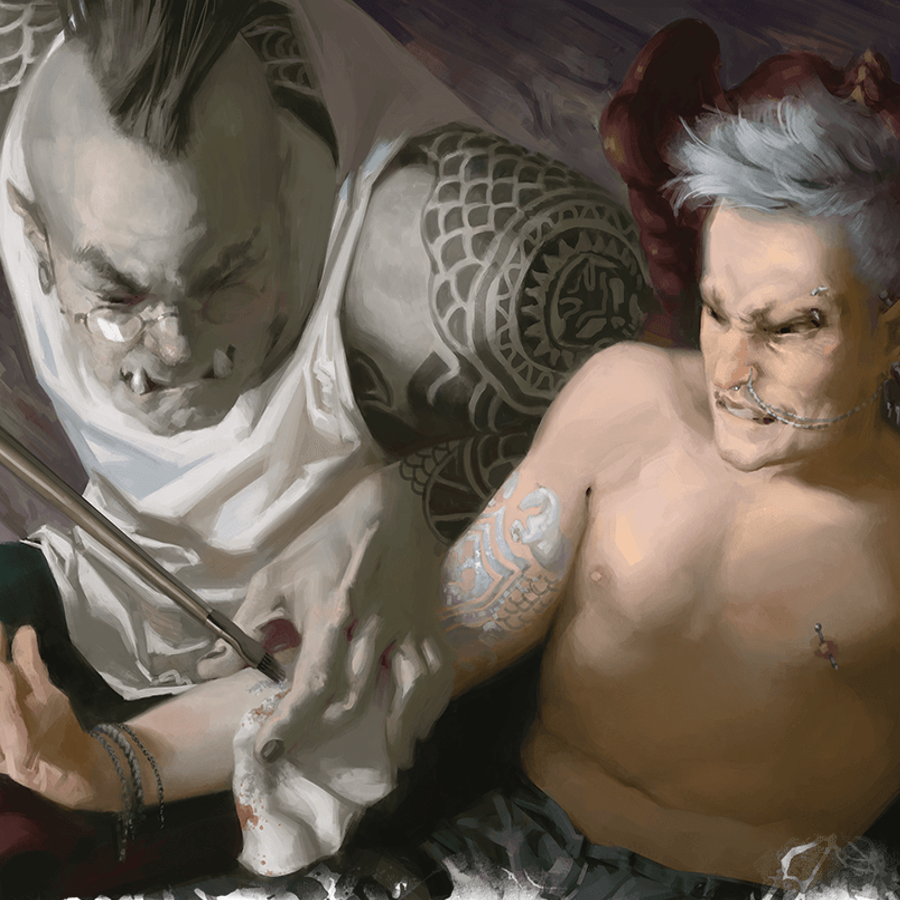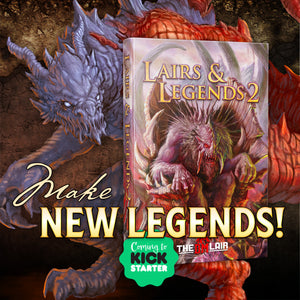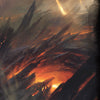15 Tips for Creating Amazing NPCs in D&D

Written by Luke Hart
If you are a game master, you know exactly how frustrating it can be when you work really hard to create a cool NPC and your players totally blow them off. It’s like they don’t even care. So, today, we’re going to go over 15 things that all NPCs in tabletop RPGs like D&D and Pathfinder must have if you want your players to care about them. Actually, having 15 is ridiculous. Just a couple of these things can drastically increase the chances of creating an NPC that players will engage with and perhaps even come to love.
Watch or listen to this article by clicking the video below.
#1 Wants and Desires
Know what the NPC wants. A shopkeeper may want to make money, but they also want to ensure a positive reputation or get friendly adventurers to recommend them to other adventurers. They may also have other specific goals like being more successful or having a better reputation than another shop owner or to move up in the guild to gain power or status in their trade.
#2 Fears
Know what the NPC fears. A guard may be afraid of getting a demotion if they screw up one more time or fear missing out on a promotion if they appear to be lax in their duties. They may also have a more tactile fear, such as a fear of dogs, or a more high-concept fear, like a fear of political change that will result in a duke who is less accommodating to guards.
#3 Likes and Dislikes
Know what the NPC likes or dislikes. Maybe they don’t like noisy customers or wizards because of one who accidentally damaged his shop, or perhaps they just don’t like dwarves. Maybe they really like chatty customers that they can pass the time with or are fascinated with their history, or they like people who wear purple. Whatever it is, it should be something likely to come up during PC interaction. You may be asking, “What’s the point of all these numbers and lists and things they like or don’t?”
Knowing these things can help you roleplay them better at the game table. It will help you improvise what they say and do as your players interact with them. It will also help make your NPCs more interesting. It gives them depth and adds more little things your players are likely to find appealing, causing them to latch onto and enjoy your NPCs.
#4 Quirks
Add a memorable accent, a scar on their cheek, an eye patch, or a certain body language such as leaning forward a lot when they stand up, pacing back and forth, or slouching more than usual. Audible and visual cues work equally well.
As a game master, try to do those things at the table as the NPC is doing them in the narrative. If the NPC is slouching, you can slouch; if the NPC gestures with their hands as they talk, do the same thing.
#5 Verbal Affectations
Expressions, sayings, slaying, and so on are memorable ways of speaking for your NPCs, such as ending every sentence with “You know.” You don’t need to be able to act out in an accent or change your voice. Just add some sort of catchphrase or verbal affectation to your NPCs.
#6 Unique Voice
Of course, your NPCs could obviously have a unique way of speaking, and it doesn’t have to be an accent like all dwarves speaking Scottish simply because it’s only right that dwarves speak like this. Besides doing an accent, you can just raise or lower the pitch of your voice. Just make your voice unique. You don’t have to replicate an accent. Some of us, like me, are probably really bad at replicating accents, even though I try really hard.
#7 A Place In the Social Hierarchy
Where does the NPC stand in society? Are they a common present who works in the fields, or are they a nobleman? Where does the NPC stand in their strata of society? You could have a duke, for instance, who is high overall but on the chopping block, and even lesser nobles hold sway over him because something from his past has gotten out, and he is being passed around throughout his circle.
You might have a peasant who mostly shuffles poop around out in the field, but they might have sway over other peasants who shuffle around things more unsavory than poop. I don’t know what that would be, but I think you get my point.
Here’s a pro tip I discovered in my games that tends to work really well. If you have an NPC who is silly or weak and pathetic, it tends to resonate with players. They seem to enjoy this. I don’t think it’s because players are weak, empathetic, or silly. I think it’s just because they interpret that as adorable or something. They tend to like that and want to adopt these NPCs and be friends with them for some reason.
Gary the Intern is a famous example of mine. He’s a kobold with a high-pitched voice, and he’s just very silly and weak and pathetic. Almost all players have universally loved Gary the Intern for some reason, and I can only attribute that to being silly, weak, pathetic, and probably having this high-pitched, adorable (I presume) voice.
#8 NPCs Doing Something
NPCs don’t just stand there like lumps. A bartender is cleaning glasses, a shopkeeper is re-stocking shelves, and a guard keeps glancing around while talking to others. Most people don’t stop everything they’re doing when they talk to someone. They may be attentive, but they might still shift their stance, sit down in the middle of a conversation, or even sneeze. Just have them doing something that makes the encounter with the NPC dynamic.
If you watch movies, you’ll notice that when there is a conversation going on between a couple people, most of the time, they don’t just stand there; there’s something else going on. There are famous walking scenes where the actors walk together, and the camera follows them as they talk. They don’t just stand there like lumps; there’s action because that makes things more interesting.
#9 Names That Are Easy to Say and Remember
This is pretty simple. Use names that are easy to say and remember. I know many of us play fantasy games, and long, complicated names that are almost impossible to pronounce with tons of what I like to call fantasy apostrophes in them are pretty much the norm. The problem is that even though J'ere'fth'fth'fth'fth may look cool on paper, if the players can’t pronounce or remember it, they won’t remember the NPC. If they do remember it, it’ll be a joke about this guy whose name they can’t pronounce—“Remember that one guy over there called bIeaghbleabhbleah?” “Yeah, yeah! I know about him.” Yeah.
You see, something like Steven Silvershield is far easier to remember than Skethereft Jhorbollyr. It may look like a nice fantasy name, but you probably can’t pronounce or remember it, and your players are gonna ask, “How do you spell that?”
By the way, on a related but unrelated note, be prepared for players to create pet names—especially if the name you give is hard to pronounce. For example, I had a gnome once in my Wonder Panda campaign called Piddenpop Greenfeet, and my players changed that name to, you guessed it, Pudding Pop. There’s nothing actually hard to pronounce about Piddenpop Greenfeet. I think my players were just being players and decided that Pudding Pop was his name.
# 10 Reflections of the PCs
Basically, you use NPCs that reflect the PCs and PCs that are a reflection of or in opposition to a PC’s personality code or attitude. For instance, the NPC could hold up a mirror to one or more of the PCS that will be engaging and memorable. Maybe an NPC shares a paladin’s code of honor or has the cleric’s holy symbol hanging on his shop wall because of his devout worship of that deity. Alternatively, maybe they think the cleric’s deity is overrated or have signs up warning that thieves will be prosecuted to the full extent of the law if one of the PCs is a rogue with sticky fingers.
#11 Cast Them
This involves describing the NPC using real world people as a reference. Whether they are an actor, athlete or other celebrity, or just someone everyone in the group knows, you can add or remove traits. You could say something like “He looks like a young Harrison Ford with an eye patch and a scar.” That sort of thing makes an NPC easy to envision and remember, and it can give the players an idea about what they sound like.
For the record, I’m really bad at this. I have almost no pop culture knowledge. It’s my worst Trivial Pursuit category, and I almost never do this in my games because I’m fairly incapable. If you can do it, then go for it.
#12 One at a Time
Don’t introduce multiple NPCs at once if you’re trying to engage the PCs. If you have one NPC, they can talk to all of the PCs at once. That will get everybody involved with that one NPC and the interaction that’s occurring, learning more and experiencing more about that one NPC. If you have multiple NPCs engaging in multiple conversations, you’re now splitting your own attention as a game master and reducing your ability to fully flesh out and develop all of the NPCs. You’re also taking the players’ attention away from a central NPC and casting it toward multiple NPCs.
Focusing on one at a time will help you flesh it out, which is much better than trying to describe several at once. Spotlighting one NPC also helps you focus on running it, ensuring you can make it more engaging and memorable because you’re doing fewer things at once.
# 13 Limits
Define the limits of what the NPC will do. A shopkeeper may not want to spend all day talking to potential customers when there are others with questions or who are interested in buying things. A sage might not have all the information right at that moment and may need to do additional research. A guard may grow tired of the PCs trying to talk their way out of something and failing and just arrest them or tell them to move on. Give the NPCs a reason not to engage in a never-ending social encounter. An NPC with a reason to stop talking is more memorable than one that just lets the PCs control the duration of a conversation.
#14 Reference Other NPCs
You can have NPCs reference other NPCs even if the characters have never met them. I mean, in the game world, think about it. People know other people, and an NPC that only seems to know the characters is less realistic than a blacksmith who gets interrupted by an apprentice to say someone is there to pick up a batch of horseshoes. It makes them feel much more realistic.
# 15 Don’t Force It
If the characters or your players don’t seem interested in a specific NPC, just let them move on. If the NPC is important, they’ll meet them again and have another chance. Don’t try to force an NPC down players’ throats, or they’ll just resist the NPC all the more. They’ll feel like they’re being railroaded into liking someone. It is a much more realistic and better strategy to just create your NPCs and run them in the game. Players are going to like them or not.
When they do latch onto an NPC they really like, perhaps it can become a reoccurring NPC that they meet again in the future. You’re basically just going to throw out lots of different lines with NPCs to see which ones the characters and your players will bite at and then double down on those they enjoy or hate. An NPC that they hate and revile can be just as interesting and fun in the game as one that they love. However, those are just my suggestions for creating compelling NPCs that players will love.
100 Years of GM Experience at Your Fingertips!
Are you a NEW GAME MASTER feeling a bit overwhelmed by everything involved with running a role-playing game? Are you a VETERAN GAME MASTER looking for new tips and tricks to take your games to the next level? Look no further than the Secret Art of Game Mastery.
We at the DM Lair have distilled our CENTURY of accumulated GM experience into an easy-to-read guide of practical advice that you can immediately apply to your games! We've even included our own templates–the things that we use to prepare our ACTUAL games.
Get all three books to master your game:
- The Secret Art of Game Mastery. Contains over 100 years of GM advice distilled into an easy-to-read format. It introduces and explains the tools of the trade, scheduling, playstyle, post-game notes, getting player feedback, and more.
- The Secret Art of Preparation. Brings to your fingertips the actual templates and guides that the DM Lair team uses to prepare games, Lair Magazine, and more. Designed as a three-ring binder, it's intended for you to write directly into for your entire campaign!
- The Secret Art of Notetaking. Gives you the keys to tracking your campaign from session to session just like the DM Lair team. Designed as a three-ring binder, it's intended for you to write in and keep track of your whole campaign!
With so much knowledge and experience on its pages, The Secret Art of Game Mastery is guaranteed to become an indispensable tool for all game masters, new and veteran alike. And if that isn’t enough, the information applies to all game systems and all genres!
-
Posted in
Game Master How-To Articles







